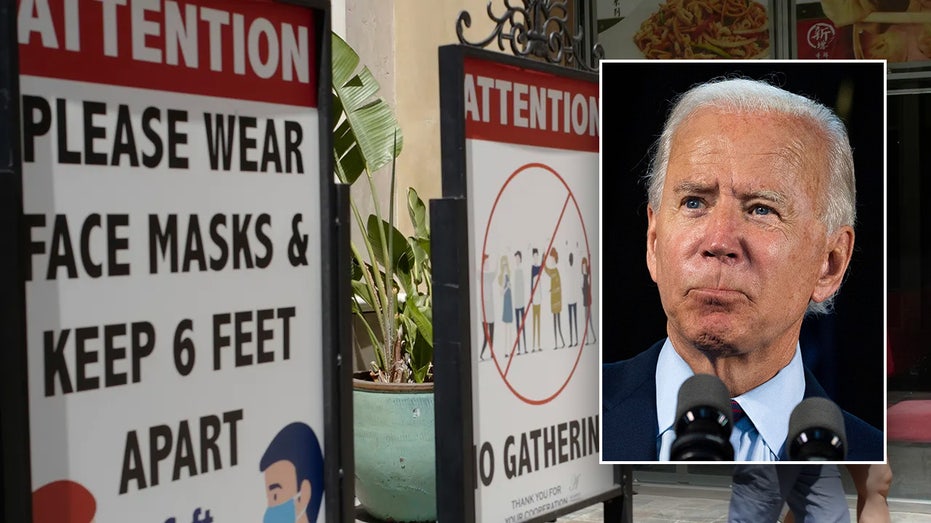In recent developments, lawmakers are stepping up to address concerns raised by a startling report revealing that the Small Business Administration (SBA), during the Biden administration, failed to investigate around 2 million potential instances of COVID-19 relief fraud. The ramifications of this inaction have ignited a significant backlash among politicians, especially as fraudulent claims have significantly undermined the integrity of various pandemic assistance programs.
The report, which was circulated among Senate and House committees, highlights the inadequacies in the SBA’s ability to enforce fraud prevention measures in the wake of the COVID-19 pandemic. At a time when businesses were struggling to stay afloat, the government’s swift disbursement of emergency funds was essential to maintain economic stability. However, this urgency also opened several avenues for potential misuse and exploitation, as the lack of rigorous verification processes facilitated opportunities for fraudulent claims.
According to the findings, the SBA disbursed over $800 billion in funds through various relief programs designed to support businesses affected by the pandemic, including the Paycheck Protection Program (PPP) and the Economic Injury Disaster Loan (EIDL) program. However, it has come to light that an alarming percentage of these funds may have been allocated to ineligible individuals or entities, raising serious questions about accountability and oversight in the administration of these critical support initiatives.
The study notes that an estimated 2 million claims raised red flags according to various metrics typically used to signal fraudulent behavior. An investigation of these claims was deemed crucial to ensure that funds were directed to those truly in need during one of the most challenging economic climates faced by American businesses. However, the report suggests that the SBA’s investigative efforts were grossly inadequate, prompting frustration among lawmakers who are now demanding thorough accountability.
Lawmakers from both parties are expressing outrage over the findings presented in the report. They assert that such an oversight could have been mitigated through more stringent application review processes and enforcement mechanisms. Senators and representatives have started to push for hearings to further penetrate the depths of the SBA’s operational frameworks during the pandemic period, drawing attention to the urgent need for reform and enhancement of fraud detection systems.
One prominent figure, a Republican senator whose state was significantly impacted by COVID-related business disruptions, has called for immediate action to rectify existing weaknesses in the SBA’s fraud detection protocol. He noted, “We cannot allow taxpayer dollars to go into the pockets of those who have taken advantage of a crisis. It’s our responsibility to ensure the integrity of our financial assistance programs, and this report underscores a grave failure in oversight.”
On the other hand, some Democratic lawmakers have also voiced concern, indicating that such failures not only jeopardize the accountability of taxpayer money but can also tarnish the reputation of genuine businesses that depended on this relief for survival. They advocate for an overhaul of the existing systems to enhance transparency and prevent similar oversights in the future.
Efforts to address the flaws in the SBA’s fraud detection have been met with a mixed response from stakeholders in the business community. While many small business owners support strengthening oversight measures to protect the integrity of the funding process, there is also fear that excessive regulation could inadvertently hinder access to necessary financial assistance. Some business organizations have cautioned against excessive clampdowns that might delay urgently needed funding to legitimate businesses facing financial distress.
In response to mounting pressure, the SBA is currently reviewing its protocols for investigating fraudulent applications, and several lawmakers have urged the agency to implement more advanced technologies to prevent fraud proactively. The use of artificial intelligence (AI) and machine learning algorithms has been proposed as a feasible approach to enhance the accuracy of applications and detect irregularities more effectively. By adopting such technological tools, the SBA could streamline its procedures while maintaining necessary safeguards against fraud.
The public reaction has been multifaceted, with some individuals calling for accountability at the highest levels of the SBA and the administration. Many taxpayers are frustrated, feeling that their hard-earned money has been misallocated and looking for assurance that steps will be taken to remedy this situation. Grassroots organizations advocating for financial responsibility are amplifying their voices, demanding thorough audits and transparent reporting on the outcomes of relief funding.
This situation reveals a complex interplay between the need for swift governmental response during emergencies and the imperative of ensuring due diligence in taxpayer-funded programs. As the federal government grapples with the repercussions of the pandemic, a reevaluation of priorities and processes may be necessary to strike a balance between efficiency and accountability.
As hearings are poised to commence, the fallout from the report will likely influence not only the practice of the SBA but may also serve as a critical learning opportunity for future crisis assistance frameworks. Lawmakers and agencies must navigate this landscape carefully, ensuring that any policy adjustments take into account the varying needs of businesses while simultaneously safeguarding against fraudulent activity.
In conclusion, the findings presented in the recent report have catalyzed significant discourse around the operational integrity of the SBA during the COVID relief funding era. Legislative responses will undoubtedly shape the future of business assistance programs, guiding improvements in efficiency without compromising the principles of transparency and accountability necessary for public trust. Going forward, it is essential that the lessons learned from the past are harnessed to fortify support structures so that they can meet the challenges posed by unforeseen emergencies without faltering at the gates of accountability.































